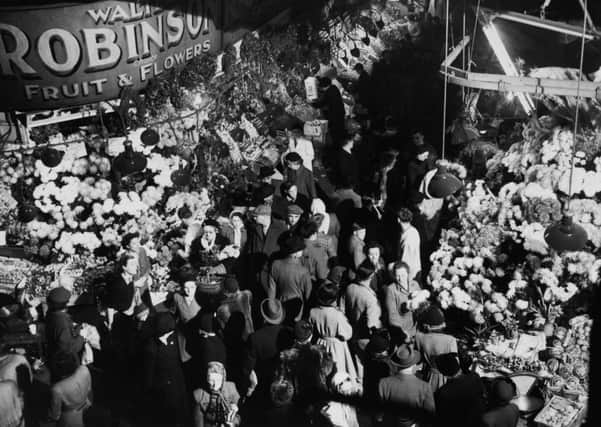Tidings of joy amid Soviet intrigue and times of austerity


SIXTY years ago the world awoke on Christmas Eve to the news that Lavrenti Beria had been shot for high treason in the Soviet Union.
The influential, and much feared, former head of Internal Affairs and State Security, was killed along with six others having recently been deposed.
Advertisement
Hide AdAdvertisement
Hide AdThe Yorkshire Post reported that Beria confessed after he, along with his accomplices, had been charged with “terrorism, murder, political treason and campaigning against Russia’s defensive capacity”.
All seven men faced the highest sentence – the death penalty, as well as the confiscation of property and removal of all military rank and decorations. The newspaper said the announcement in the Soviet Press filled just three lines under the headline “The sentence has been carried out.”
But if Moscow was rife with Machiavellian intrigue and betrayal, the news in Yorkshire tended to have a much lighter, festive feel in the run up to Christmas.
In Scarborough, more than 173,000 cards and letters were posted in a single day – beating the previous record set the year before. It was a similar story across the county with record numbers of festive cards and letters recorded in Leeds, Sheffield, Bradford and York.
Advertisement
Hide AdAdvertisement
Hide AdChristmas, of course, wouldn’t be the same without a visit from Santa Claus and in Hull a group of disabled children had a Christmas they would never forget when he turned up at their school with presents for all of them.
The newspaper said Father Christmas then spent three hours on the phone as nearly 10,000 excited youngsters and their parents left messages for him. Calls came in to Hull from as far away as Scotland and Ireland with one person even ringing in from Sweden.
Eight years had now passed since the end of the Second World War but rationing wouldn’t formally come to an end until the following year, and in this period of post-war austerity people were careful with their money. Nevertheless, in Leeds, at least, you were hard pushed to get your hands on some festive items. According to one trader holly was “harder to come by than gold” while a shortage of Christmas trees meant demand had gone through the roof.
Nowadays, television has become as much a part of festive family gatherings as turkey and mince pies with the TV schedule one of the first things people make a bee-line for once the festivities start.
Advertisement
Hide AdAdvertisement
Hide AdIn fact, if you banished it from some homes there would be anything but peace and goodwill.
But sixty years ago they didn’t have fancy plasma screens and the little black box was still something of a novelty and was viewed with suspicion by some people.
In an article titled “Are there fewer TV viewers at Christmas?” the Yorkshire Post’s television correspondent Barrie Heads felt the festive telly didn’t amount to much. Not that he was particularly bothered.
“After all, viewing audiences are likely to decline over Christmas, for it would be a dull, domestic party indeed that would rather get its pleasures from a television set when Uncle Herbert is dying to do his imitations.” My, how times have changed.
Advertisement
Hide AdAdvertisement
Hide AdThese days the accusation that Christmas is all about money seems to get rolled out every year, but even in 1953 it was a criticism that concerned people.
In its Christmas Eve editorial, the Yorkshire Post made an eloquent and impassioned plea in support of the Yuletide festival despite its “orgy of family consumption”.
“The Christmas season,” it stated, “is more than a feast of good things.
“Despite so much that might make an increasingly materialist world overlook its deeper significance, it remains a minder of spiritual truths that underlie the whole of human life and give it grace and purpose.
Advertisement
Hide AdAdvertisement
Hide Ad“Christmas, Scrooge’s nephew made bold to point out to him, is ‘a kind, forgiving, charitable, pleasant time; the only time I know when men and women seem by common consent to open their shut-up hearts freely, and to think of people below them as if they really were fellow passengers to the grave and not another race of creatures bound on other journeys.’”
It added that for all the social and welfare progress enjoyed in the world there appeared to be a growing sense of fear and anxiety.
“The need for the Christmas tidings of comfort and joy, and for the springs of love and pity which they release in human hearts, was never greater.”
Tomorrow we look back at 1963.